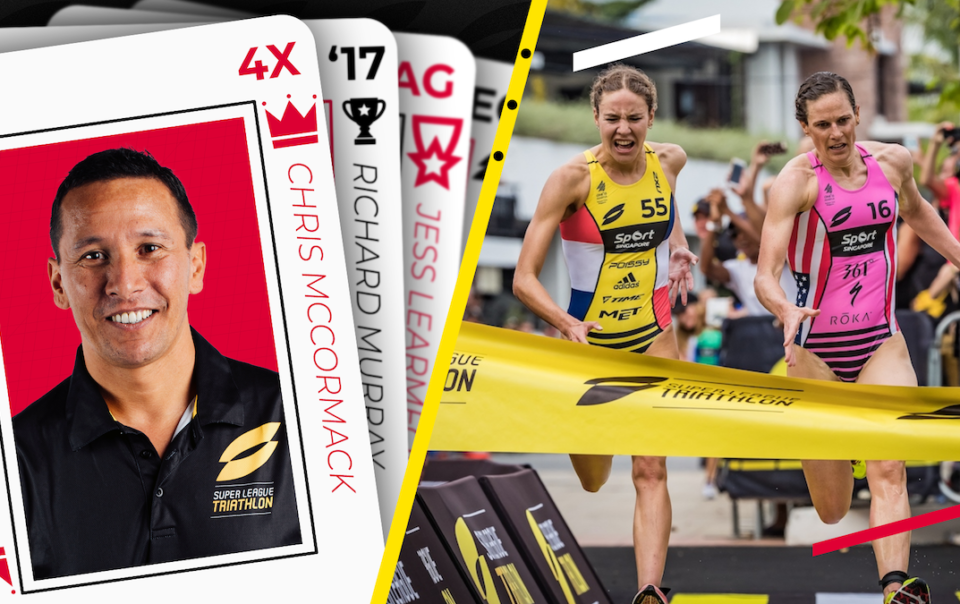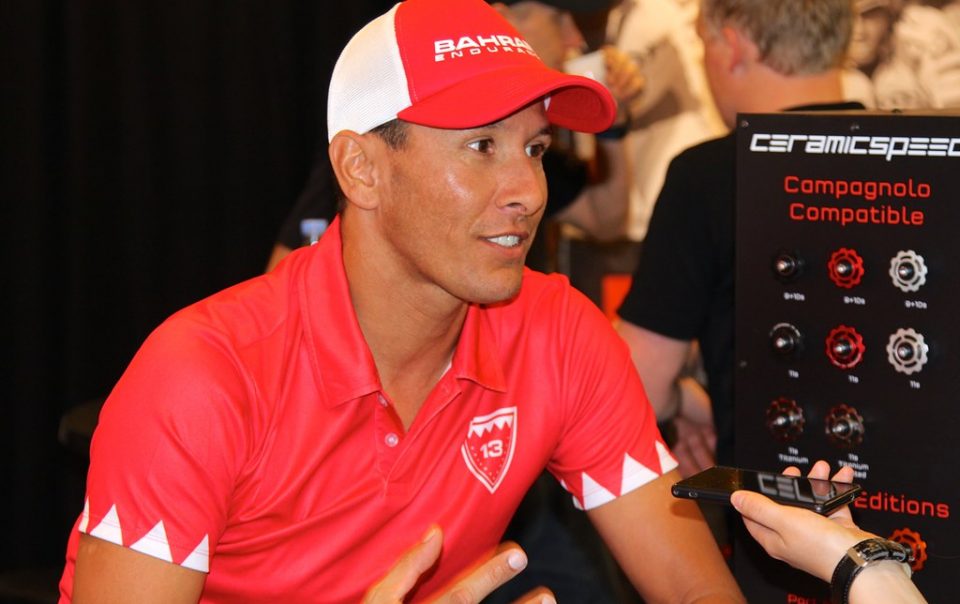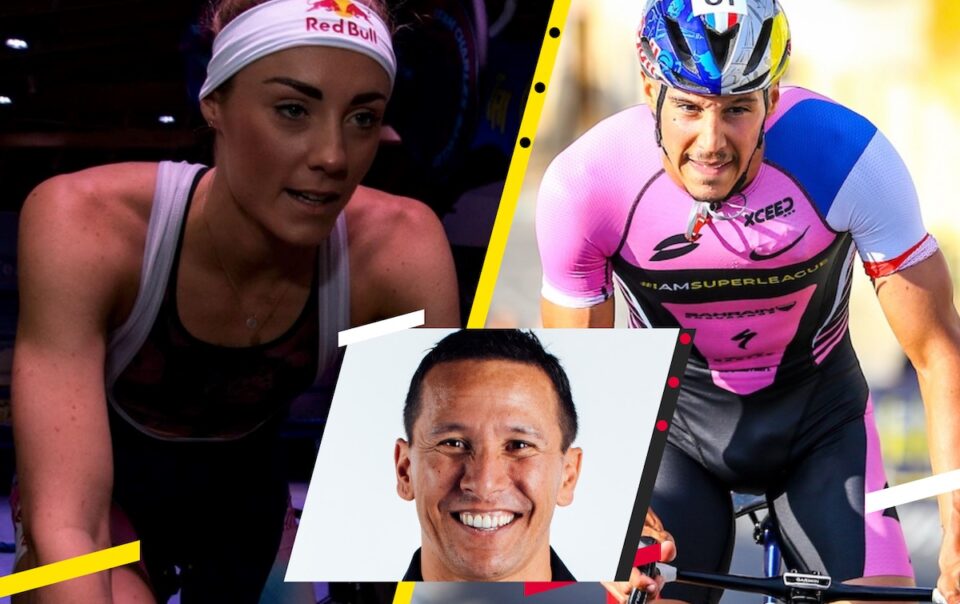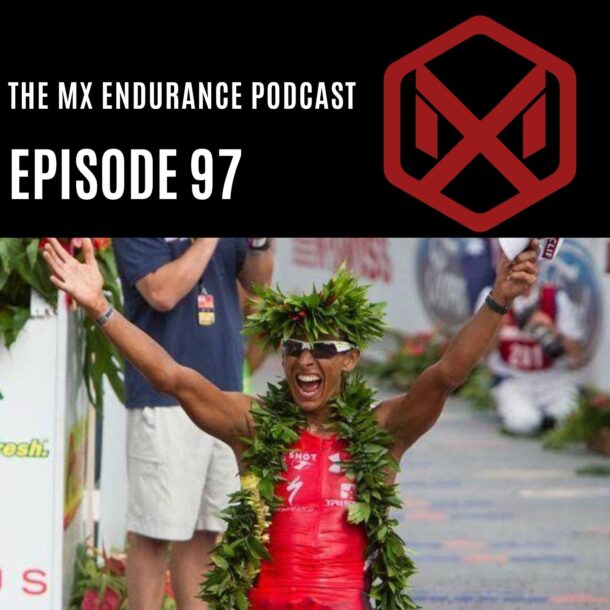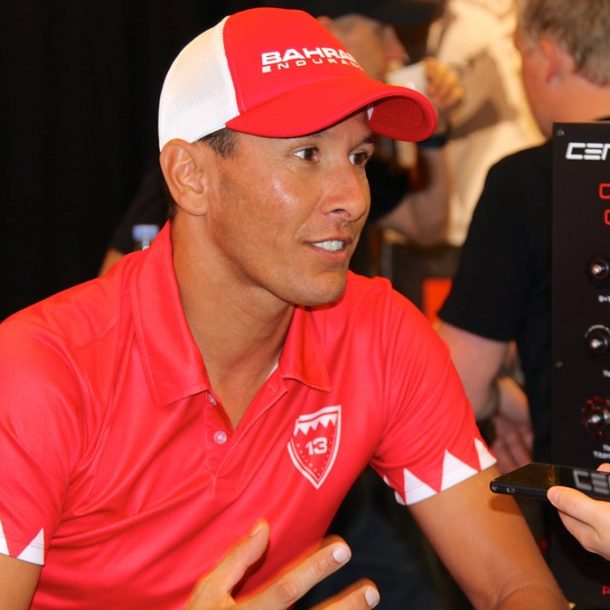
There’s a term I have heard thrown around a lot recently in triathlon – GOAT. It stands for Greatest Of All Time, but while it’s a great topic for conversation some people are not considering what it really means.
In sport we are talking about people’s careers, maybe over 20 years, so to be labeled the greatest of all time at a sport should be not an off-the-cuff statement reflective of a couple of great races in a season. It’s actually a debatable and arguable statement. It has more depth than a couple of race wins and a social media following.
GOAT is a term that I first heard in the USA. It was a solid debate in boxing and in baseball, that was openly discussed on all the major sports shows. In American sport it’s always been backed up with a lot of statistics.
You see that now if you watch The Last Dance with Michael Jordan where the facts make it clear that to call him the GOAT in basketball is warranted.
In triathlon in particular it just seems to be thrown about without people giving enough thought to it or properly backing it up. It has become a statement of respect of a performance more so than the study of a career in relation to the sport and its history.
I hear a lot of these conversations and I often think “he’s an idiot who doesn’t know what he’s talking about” or “he’s been in the sport five or six years and doesn’t know his history.”
It is unfair — and almost at times rude — to compare athletes across generations, but it is something that will always occur and will always be argued as generations celebrate their current stars in relation to those who shaped the pathway before them.
With this in mind and buying into the argument, what I find is that the majority of people in triathlon who put these polls up or open up this can of worms in discussion tend to have a big bias towards Ironman racing when presenting their argument.
While Ironman represents a large portion of the mass participation market in this sport, it does not represent the high performance ambitions or the entire foundation of triathlon at its core. It is part of a bigger picture of a sport, especially if you want to have this discussion openly and unbiasedly.
To discuss it properly you have to be a true fan of swimming-biking-running. You have to appreciate the massive historical changes that have come through the sport, in particular the formation of the ITU in 1989, the development of World Championship events off the back of unofficial World Championship events that existed prior to set dates, and of course the shift in short course racing to a draft legal format in 1995 that saw the entire evolution of this racing fork at this juncture.
If you talk with Bob Babbitt who has been in the sport since the beginning as both an athlete and a reporter and media voice for the sport, or have this discussion with some of the professional athletes and coaches about the greatest of all time, you immediately hear relevant questions asked, prior to giving an answer – is this in relation to a specific distance, a specific style of racing, or to triathlon in general and an athlete’s ability to compete in the sport at all its styles and formats – from Super League distance to Ironman distance?
The foundation of my argument when this has been brought up is that to call someone the greatest of all time in a sport, you have to go across the entire sport and an athlete’s ability in its core deliverables of swimming biking and running regardless of the length of the event. That has to be pivotal in making this judgement. In basketball the athlete with the most points is not necessarily the greatest player. Other factors like Rebounds, Games Played, Free Throws, steals and time played are major statistics used to show an athlete’s overall influence on a game.
The same sort of analysis needs to apply when talking about triathlon, so to talk about the greatest triathlete of all time is to look at several things:
- You need to have excelled at all distances on the highest stage
- Where do you sit alongside the best in the sport at that time at the three distances within the sport and what is your balance of disciplines?
- Have an impressive win-loss ratio in those distances, giving world championships extra weight but head-to-head racing needs to be considered
- Racing frequency, because the modern day triathlete’s racing frequency is minimal compared to even my early years where I raced 20 times a season and not six
- Did they shape the landscape during that period and did they influence the way other athletes prepared?
Longevity – how long was their influence felt? - Another little bit which isn’t as important is were they commercially viable? Did the brands within the sport at the time find them valuable?
So for men from my perspective (and not including myself) you have to put forward Jan Frodeno, Mark Allen, Greg Welch, Simon Whitfield, Alistair Brownlee, Javier Gomez and Simon Lessing.
These athletes have to be shortlisted and despite different specialisation and success over different distances, their dominance within the sport was felt during their reign and the argument can then proceed by focusing on the clear statistics around the racing and their influence.
I still think Mark Allen is the greatest triathlete to ever do the sport. He was ahead of his time, owned his era of racing, and influenced the era beyond his significantly.
While many are aware of his Ironman history you have to appreciate his racing across all distances, over all terrains, all over the world as his trump card.
He won the first official ITU World Championships in 1989 despite being “unofficially recognised” as the best in the sport for the years prior to this.
He won six times in Kona which is where his legend was established to the masses. There was no 70.3 World Championship (this started officially in 2006) but the Long Course event in Nice, France, was the equivalent and he won that ten times.
The Unofficial World Championships for the Half Ironman distance up until 2006 was recognised as Wildflower Triathlon and Mark also won this event every time he competed in it.
He won in Zofingen, Switzerland, in the duathlon event that stopped the world, and literally won every event he competed in season after season.
His win-loss record to everyone in the sport he competed against was in the 90 per cent range. In short, you wore more defeats to Mark than you did victories over him in that era of racing, across all distances. He won all the major titles and defended them.
He raced a lot in his early years against some of the strongest to do the sport with athletes like Pigg, Molina, Scott, Tinley, Bustos, Welch, Zach, and at the end of his career even Hellriegel and Lessing.
He only did non-drafting but that was irrelevant because he shaped the landscape of competition and everyone had to change their game for it.
His longevity was remarkable. His influence is still talked about. He shaped the sport and for me was the first to migrate from the pioneers of the sport into the modern racer.
This is an arguable point, but the Ironman racing in the early 1990s, and his dominance of it, was legendary and beyond impressive. He delivered when he had to, and that is why titles matter and owning them and executing on them is a pivotal point in this discussion. Mark owns every title in the sport across all distances of triathlon.
Jan has won three times in Kona, an Olympic gold medal, is the fastest ever to compete at the distance of Ironman and the record holder in Hawaii, won the 70.3 world title multiple times against some of the best in the world and is the modern day force. He never won an ITU World title and he never dominated at that distance but was most certainly a presence.
So, how do you compare them? Jan has five world titles but if you count Nice and Wildflower, Mark has a lot more. Looking at Jan’s win-loss ratio in the long course era is very similar to Mark in the Ironman and half Ironman space, and his presence is just as mystical and influential as that of Mark.
What it does lack is success in the ITU era, but that is being very picky (which you have to be when deciphering and comparing athletes across generations).
He won a gold medal at the Olympics in Beijing, which Mark couldn’t do because triathlon wasn’t in the Olympics during his racing era, but he never won as frequently as Mark at Olympic distance racing, nor did he possess the same fear over his competitors at this distance as he does at Ironman. Mark’s fear as an athlete by his competitors was felt across all distances.
In the case of Jan Frodeno this can be credited to the fact that Alistair Brownlee existed in his era alongside the Spanish juggernaut Javier Gomez. This as well as Simon Whtifield, who was in the era before but crossed into both eras, led to a perfect storm of talent that made success at the ITU distance an argument to be presented.
So, do you then count that against Mark Allen? No. And that’s what people need to understand. It might have been 1994 but they were great athletes and without all the trendy bikes, aero helmets and gels. He did Ironman with a couple of figs and a banana in 8:06. A superstar.
I have caught myself a few times saying Jan Frodeno is the greatest of all time because I am such a fan of his work and he has truly showed at this moment in the sport’s history he can do it all, when it is asked of him on the biggest stage.
However, I cannot let my appreciation of an athlete and the way he executes his craft blind me. I have to put Mark Allen up there.
I also think about Simon Lessing who straddled non-drafting and draft legal ITU racing and was amazing in both, dominating the sport during his racing era and winning when it mattered, Peter Robertson, who won three ITU World titles but was a title targeted athlete, Javier Gomez, who has longevity, a phenomenal winning percentage and has gone across all distances with only one world title missing from his resume.
Simon Whitfield, Hamish Carter, Mario Mola, Craig Alexander, Dave Scott, Scott Molina are athletes who also have to get a mention for so many reasons.
There are people who have won across all disciplines, and won the biggest titles at those distances during their time of dominance.
Winning across all facets of the sport has to be a prerequisite for discussion or a trade-off of certain wins/dominance/influence against titles won.
Do I see myself as good across all distances as Jan Frodeno and Mark Allen? Absolutely not, but like them I focused specifically on being the best in that period of time in my racing, and winning the biggest events at that time was my motivation.
Most athletes migrate up in distance as they age, so Ironman success comes later in a career. I put those gentlemen well in front of myself and Greg Welch, who also won across all distances, but in a much different way.
People mention Alistair Brownlee. He is the greatest short course triathlete ever. No one is in the same ballpark as that guy. He is standalone.
Did he shape the landscape? He moved it so far it took people three years to even catch up. His win-loss ratio? He didn’t lose. Major titles? He took them all. Frequency of racing? Exceptional. The only thing that limited him was injury because he couldn’t stop racing.
Influence? Remarkable – look at the British system. Commercially successful? He’s the most successful. He’s bigger than triathlon.
He is without question the most exciting and dynamic triathlete I have ever seen come onto the scene, and his desire to win and the way he raced thrust him into the spotlight so rapidly.
I have never witnessed an athlete so technically brilliant, who worked so hard, and had both a racing mindset and strategic planning component that made each and every win of his appear even better than the previous.
He hasn’t won Kona, but I can also say Jan Frodeno didn’t win an ITU world title or dominate a world series like Alistair.
In head-to-head racing, the balance sits well in the Brownlee camp side when it comes to racing wins against each other in comparison to Frodeno, and if you want to put Gomez in that discussion also. Yes, Jan Frodeno won a few ITU races, but Alistair has won a couple of Ironmans. And his Ironman journey has only just begun.
So where does Alistair sit in this discussion? That’s why it’s so hard and why it continues to change as the sport evolves, but having some consistency of statistical comparison is critical.
The greatest Ironman athlete of all time is Mark Allen. The greatest ITU athlete is Alistair Brownlee. Jan Frodeno is not the best Ironman athlete of all-time or the best ITU athlete of all-time but we are throwing him in the discussion as one of the GOAT’s because of how close to the best he has been in these two styles of racing, and the influence he brought over both.
On the women’s side, I think it’s Emma Snowsill. She never did Ironman but this conversation is so loaded to Ironman and we only ever really hear Daniela Ryf, Paula Newby-Fraser and Chrissie Wellington put forward.
I have argued above that range of athletic success is almost a prerequisite, but I also say that you have to trade dominance with titles to allow comparison to those athletes who did not cross the distances.
Simon Lessing and Simon Whitfield above for the men fit this argument. Their influence, dominance and success is not unrecognised. This is the case for Emma Snowsill.
My argument against Emma is Michellie Jones (another Australian) who won an Olympic silver medal – I feel it should have been gold given the woman who beat her in a sprint finish a few years later tested positive for banned substances.
She won two ITU world championships along with medals at world championships for almost a decade. Two World Cups series victories, nine Escape from Alactraz titles when that race was the biggest in the world. Ironman Hawaii at a distance she did not enjoy but came across at the end of her career to “collect the title”.
Her win-loss ratio was winning 80 per cent of the time she raced. She was remarkable, and as an athlete I trained with and witnessed first hand her sheer dominance season after season is still something I will never forget.
She could do it all and had a racing mindset that saw her longevity in the sport surpass all her peers. She is an age group world champion today still in triathlon.
But the arrival of Emma Snowsill onto the circuit in 2000 after winning the junior Olympics, was identical to what Alistair Brownlee would bring to the men’s racing.
She came in like a tidal wave and moved the bar so far forward that the entire world of women’s racing took so long to catch up.
The balance of athletes you see today in the women’s racing scene is a direct product of the standard that Emma Snowsill brought to racing. She did it across the three disciplines of the sport, gave us the triathlon we know now and her times would still be relevant today.
She was robbed of two Olympic gold medals because she was left off the Athens team as World Champion in 2004 and I believe she would have won that gold. The ignorance and politics of Australian Triathlon in that era is legendary, but robbed an athlete like Emma of Olympic success that was warranted. She won that Gold medal in the Beijing Olympics four years later in a crushing victory.
She gave up her career to have children and support her husband, Jan Frodeno, post the London Olympics – where again the Australian selectors opted to follow a strange selection policy – so we didn’t even see the best of her.
What we did see when she raced was dominance like we have never witnessed in the sport.
Erin Baker in the late 80’s had it, but ‘Snowy’ executed her racing with no mercy and her winning margins are the biggest in the sport’s history.
She never did long course so you might ask how I can say this. How is she the GOAT?
I think the way she raced the transition would have been natural, and the athletes she dominated – Mirinda Carfrae and Daniela Ryf – went on to dominate in Kona.
It might be speculative, but I put her above Michellie just because of that sheer dominance.
This is why these arguments are great to have, and more so when you look at an entire career, and all races, not just a season or two. Speak to Daniela and Mirinda on who is the best they have raced, and Emma Snowsill’s name will be at the top of that list for sure.
It’s a great debate, and I’ve enjoyed just talking about it, but hopefully this column proves it really deserves some proper analysis rather than just an off the cuff statement.
The history of this sport is amazing and if you have the time you should check out some of the old racing videos on YouTube and appreciate where the sport has come from and the modern day advantages that we take for granted that simply did not exist on the racing field 15-30 years ago
It is a great discussion and for the lovers of the sport of triathlon a real treat to have in these times of isolation when we are not witnessing any new racing.
Read original article at superleaguetriathlon.com.
Philosophy
“Great things happen to people who make great things happen.”
Navigate
chris@macca.com
Terms & Conditions
Privacy Policy
